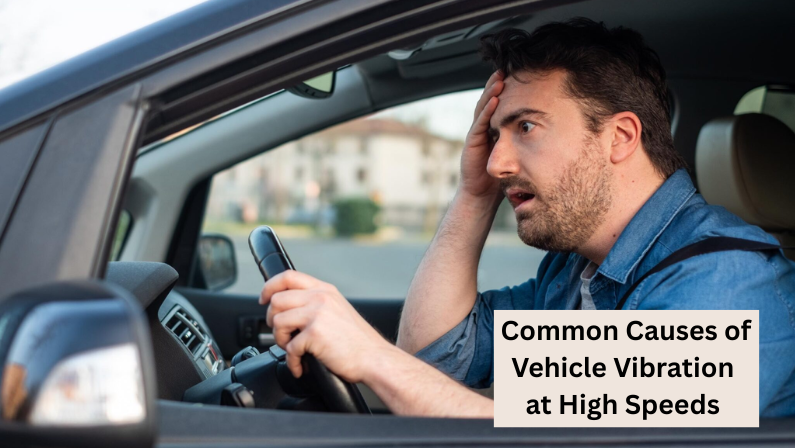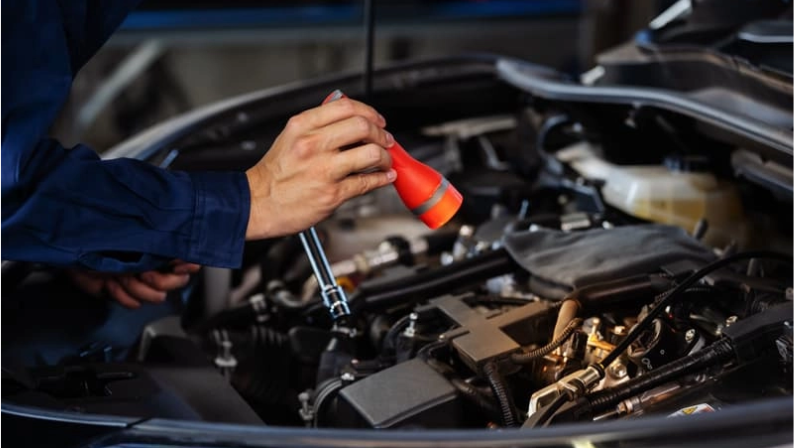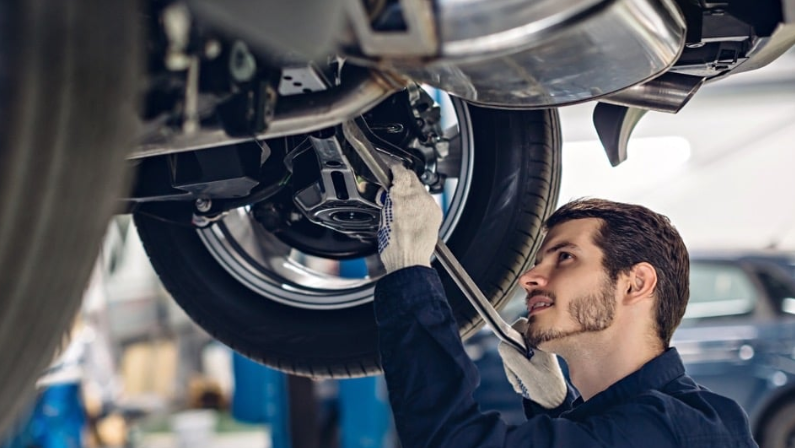Car Vibration at Higher Speeds: Why Does it Happen and How to Prevent It?
Posted on August 15, 2025

Noticing your car vibrating when you hit higher speeds? You’re not alone. Many drivers (especially beginners) get alarmed when their vehicle suddenly starts shaking on the highway. It makes driving uncomfortable and can raise concerns about safety.
While experienced drivers may have an idea of what’s going on, it can be confusing and even a bit scary if you’re new behind the wheel. High-speed vibration in a car is usually a sign that something isn’t quite right. It might be a tire issue, a problem with the suspension, or even something deeper in the engine.
Ignoring it can lead to more serious (and expensive) damage, so it’s best to address the problem early. In this blog, we’ll walk you through the most common reasons your car might be vibrating at high speeds and what steps you can take to fix it.

Is Driving a Vehicle That Vibrates at High Speeds Dangerous?
Yes, driving a vehicle that vibrates at high speeds can be dangerous and should never be ignored. If your car consistently shakes while cruising between 50 and 70 miles per hour, it's a clear sign that something isn't right.
Common issues like unbalanced tires, worn suspension parts, or misaligned wheels can lead to poor handling, reduced control, and even longer stopping distances, putting both you and your passengers at risk.
Beyond safety concerns, continuing to drive a vibrating vehicle can cause more damage over time and might even lead to a failed MOT or safety inspection. Addressing the problem early can save you from expensive repairs later on and keep your vehicle in safe, roadworthy condition.

Common Causes of Vehicle Vibration at High Speeds
Car vibrations at higher speeds can come from several different areas of your vehicle. Identifying the source is key to solving the problem before it gets worse.
Here are the most common causes:
1. Tire Issues
Tires are one of the most frequent culprits. Uneven tire wear, improper inflation, or unbalanced wheels can cause your car to shake, especially when driving faster.
Damaged or misaligned tires can also lead to vibration and reduced control. Regular tire rotation, balancing, and alignment checks can help prevent this issue.
2. Suspension and Steering Problems
A worn-out suspension or loose steering components can cause your vehicle to vibrate or feel unstable at higher speeds.
If your steering wheel shakes while driving, it might be due to issues with your tie rods, ball joints, or control arms. These parts help absorb bumps and keep your wheels steady, so any wear or damage can directly affect your car's stability.
3. Brake System Faults
If the shaking happens mostly when you're braking at high speeds, warped brake rotors might be to blame. Uneven rotor surfaces can cause the brake pads to grab inconsistently, resulting in vibration through the pedal or steering wheel. Faulty calipers or worn brake components can also add to the problem.
4. Engine and Transmission Issues
Though less common, engine and transmission troubles can cause noticeable vibrations. Misfiring spark plugs, worn-out engine mounts, or transmission problems may lead to shaking, particularly when accelerating. These should be checked by a mechanic right away, as they can affect overall performance.
5. Driveshaft or Axle Damage
If you drive a rear-wheel or all-wheel-drive vehicle, a bent or damaged driveshaft could be the cause. Similarly, a bent axle from hitting a pothole or curb can lead to shaking while driving.
These parts are critical to smooth power delivery, and any damage can disrupt the balance of the vehicle, causing vibration.

How to Diagnose Car Vibration
Diagnosing car vibration might seem tricky, but paying attention to the signs early can save you from costly repairs down the road. Sometimes the fix is simple and inexpensive, like balancing the tires. Other times, it may involve more serious issues with the drivetrain or suspension.
That’s why you need to take the time to identify the source of the problem as soon as possible. A quick self-check based on specific symptoms can help narrow things down before heading to a mechanic.
Here are some key signs to look out for:
- Constant vibrations at high speeds: This often points to unbalanced tires or damaged rims. A tire balance or visual wheel inspection can usually confirm the issue.
- Steering wheel shaking while braking: Likely caused by warped or worn front brake rotors.
- Vibrations while braking (not limited to the steering wheel): The rear rotors might be the problem and could need replacement.
- Vibrations during hard acceleration: This can indicate worn CV axles or unbalanced parts within the drivetrain system.
Tip: Always have a proper diagnosis done by a certified mechanic before replacing any parts. Jumping to conclusions can lead to unnecessary repairs and added expenses.

Preventive Maintenance Tips
Keeping your car in top shape with regular maintenance is one of the best ways to prevent vibrations at high speeds. A few simple checks and scheduled services can go a long way in avoiding costly repairs and ensuring a smoother, safer ride.
Here are some important areas to focus on:
1. Tire and Wheel Care
Tires are often the first place to look when dealing with vibration. Make sure your tires are properly inflated, balanced, and rotated regularly. Also, inspect for uneven wear and damage to both the tires and rims.
2. Regularly Inspect Your Suspension Components
Your car’s suspension system keeps it stable and absorbs shocks from the road. Over time, parts like shocks, struts, ball joints, and control arms can wear out.
Check for any signs of looseness or unusual noises, especially when going over bumps. Replacing worn suspension parts early can help avoid vibration and more serious problems down the road.
3. Regularly Check for Engine Misfires
Engine misfires can cause noticeable vibrations, especially during acceleration. Misfires are often caused by faulty spark plugs, ignition coils, or fuel system issues. If you notice shaking or a drop in performance, have your engine checked to prevent damage to other components.
4. Ensure Engine Mounts Are in Good Condition
Engine mounts hold your engine in place and absorb vibrations. If they’re worn or broken, you’ll feel more vibration in the cabin, especially when accelerating or idling. Inspect them during regular servicing and replace them if they show signs of cracking or excessive wear.
5. Routine Brake Inspections
Your brake system plays a big role in how your vehicle handles, especially at higher speeds. Warped rotors, worn brake pads, or damaged calipers can all cause vibration when braking.
Have your brakes checked routinely, and don’t wait until you hear squeaking or feel like shaking. Catching issues early helps maintain safe driving and smooth operation.

Say Goodbye to Car Vibrations – Get Expert Service at CarHub North York Chrysler
Car vibrations at high speeds can be frustrating, and sometimes even a little scary. Whether it's your tires, brakes, suspension, or engine, you need to identify the cause early to avoid bigger problems down the road. Paying attention to the symptoms and staying on top of regular maintenance can keep your drive smooth and stress-free.
If you're unsure what's causing the vibration, don't worry; CarHub North York Chrysler is here to help. Our expert technicians can diagnose and fix the issue quickly with trusted CarHub Maintenance Services. Book your appointment today and get back to driving with confidence!
